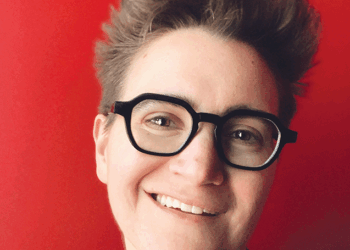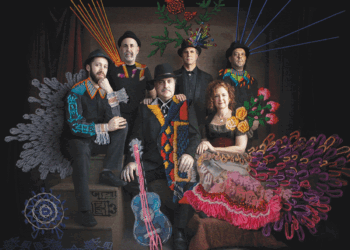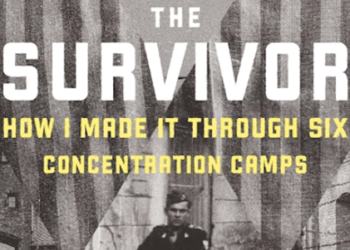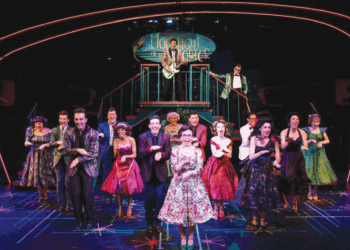Songwriter Elisa Korenne brings the lost world of immigrant Jews back to rural Minnesota
By RABBI JONATHAN PERLMAN
When New York native Elisa Korenne takes to the stage with her guitar at the Old Wadena Rendezvous and Folklife Festival in Central Minnesota on Aug. 14, she will perform original songs called “Mail Order Bride” and “Courthouse Synagogue,” which are about the old days of Jewish life on the prairie. There will be only one problem: it’s likely that none of the audience members at this two-day, homegrown festival will be Jewish.
Korenne is not a stranger to this kind of experience.
“I find that if I can bring the audiences with me, then it feels great,” the 35-year old singer-songwriter said. “It becomes an opportunity to open the hearts and minds of my listeners. The trick is really for me to find my own comfort in my Jewishness and the subject of Judaism, and then bring that comfort to my audiences.”
Korenne’s quirky songs are a mix between Cheryl Wheeler and Trout Fishing in America, the kind of folk hero songs you might hear on A Prairie Home Companion.
Art Maven
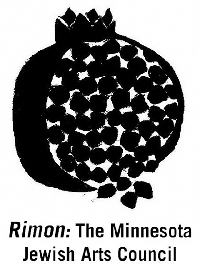
Just as Garrison Keillor searches out unusual stories to tell about life in the Upper Midwest, Korenne has her own share of ballads to tell about true-to-life Jewish Paul Bunyans who once graced the heartland.
Now she is moving her show, “‘Oy Vey’ is Jewish for ‘Uff-da,’” through venues near her new hometown of New York Mills, Minn., about 90 miles from Fargo-Moorhead.
She will also present “On the Road: Urban Jews in Rural Places” at the final Rimon Artist Salon on May 9 at Patrick’s Cabaret in Minneapolis.
“When I first contact venues like Wadena, they’re generally a bit taken aback by the unfamiliar subject matter, but willing to hear more,” Korenne said. “These are songs and stories about unique and uncommon individuals in history. They just happen to be Jewish immigrants, but no one ever hears about them.”
For example, Korenne has traced the origins of Dr. Bronner’s Peppermint Liquid Soap back to a radical Zionist refugee named Emil Heilbronner, who escaped Nazi Germany and immigrated to Chicago. He was later arrested and institutionalized for preaching his own bizarre brand of the “We are all one” philosophy. The doctrine is still printed on Dr. Bronner’s soap bottles that are on shelves in health and beauty stores today.
Another song takes audiences to the town of Devil’s Lake, where once a year the community gave up their courthouse to allow Jews from the area to pray on the High Holidays.
“The rabbi spoke from the judge’s bench,” Korenne sings, “The Torah stood on the witness stand / The sound of Hebrew prayers / Rang over the courthouse chairs.”
How all of this will go over in places like Wadena or Fergus Falls remains to be seen.
 Elisa Korenne: The trick is really for me to find my own comfort in my Jewishness and the subject of Judaism, and then bring that comfort to my audiences. (Photo: Courtesy of Rimon)
Elisa Korenne: The trick is really for me to find my own comfort in my Jewishness and the subject of Judaism, and then bring that comfort to my audiences. (Photo: Courtesy of Rimon)
How did a New York Jew with a Yale degree and a master’s from the London School of Economics end up in rural Minnesota?
In 2006, Korenne met insurance broker and outdoorsman Chris Klein from Eagle Bend, Minn., on a stint at the New York Mills Regional Cultural Center. He was her tour guide during a camping and canoeing excursion, and nearly a year later (despite the cross-country distance), the two were in love. It was love that brought her to Minnesota to live. The two have been married for three years.
When she identifies herself as a Jew to people in central Minnesota, Korenne says, “there tends to be a pause, and then a syllable of acknowledgement like ‘Oh’ or ‘Really?’ The most amusing response I ever got was, ‘You and I still believe in the same God, so you’re all right by me.’”
Korenne has become an ambassador of Jewish culture, bringing Yiddishisms and the lost world of immigrant Jews back to the small towns of walleye and carp country.
“In rural Minnesota, being Jewish has an air of the exotic about it,” she said. “I grew up feeling utterly normal [in the Northeast]; and here in rural Minnesota I have found this feeling of ‘otherness’ unexpected. It isn’t uncomfortable, nor does it feel like I don’t belong. Rather it makes me feel the importance of making a conscious connection to my heritage.”
In one song Korenne tells of the antics of Herman Fink, a grocer in turn-of-the-century Wadena, who tried to promote his new store by giving away free chickens.
The chickens caused a mess in the quiet town: “Feathers flew, the chickens too / Officials didn’t know what to do / Young boys chased, hens escaped, fistfights between the tightly laced / Ladies fussing, gentlemen cussing / And bird waste was everywhere mussing.”
Korenne wants Minnesotans to look back on the presence of Jews in rural spaces with fondness. It was a time when Jews brought spice to the homogeneous hotdish of their neighborhoods. Korenne’s ballad about poor Mr. Fink ends with a longing for the Jews of yesteryear, for “Wadena settled back down / To be a quiet town / Where boring is better than too many birds around.”
***
The final Rimon Artist Salon in the 2009-10 season, “On the Road: Urban Jews in Rural Places,” will feature Elisa Korenne 4 p.m. Sunday, May 9 at Patrick’s Cabaret, 3010 Minnehaha Ave. S., Minneapolis. The salon is co-sponsored by the Jewish Historical Society of the Upper Midwest. Tickets are $10, and can be purchased in advance or at the door; call 952-381-3449.
The American Jewish World presents the Art Maven column by Rimon: The Minnesota Jewish Arts Council, an initiative of the Minneapolis Jewish Federation.


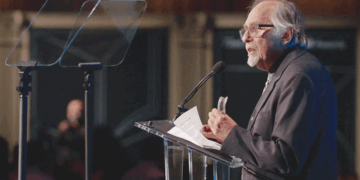






 Elisa Korenne: The trick is really for me to find my own comfort in my Jewishness and the subject of Judaism, and then bring that comfort to my audiences. (Photo: Courtesy of Rimon)
Elisa Korenne: The trick is really for me to find my own comfort in my Jewishness and the subject of Judaism, and then bring that comfort to my audiences. (Photo: Courtesy of Rimon)